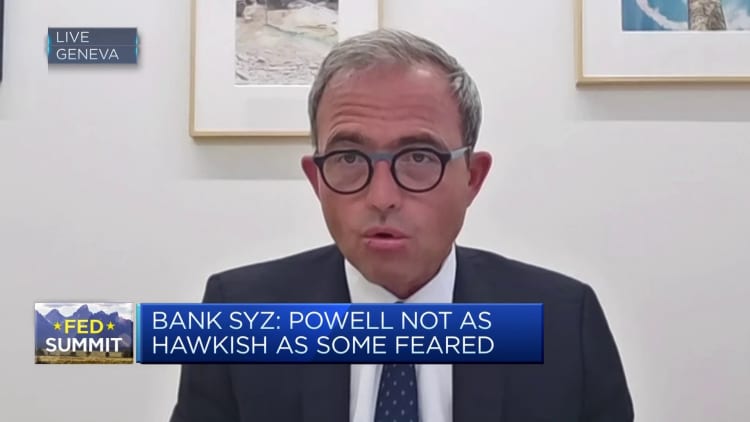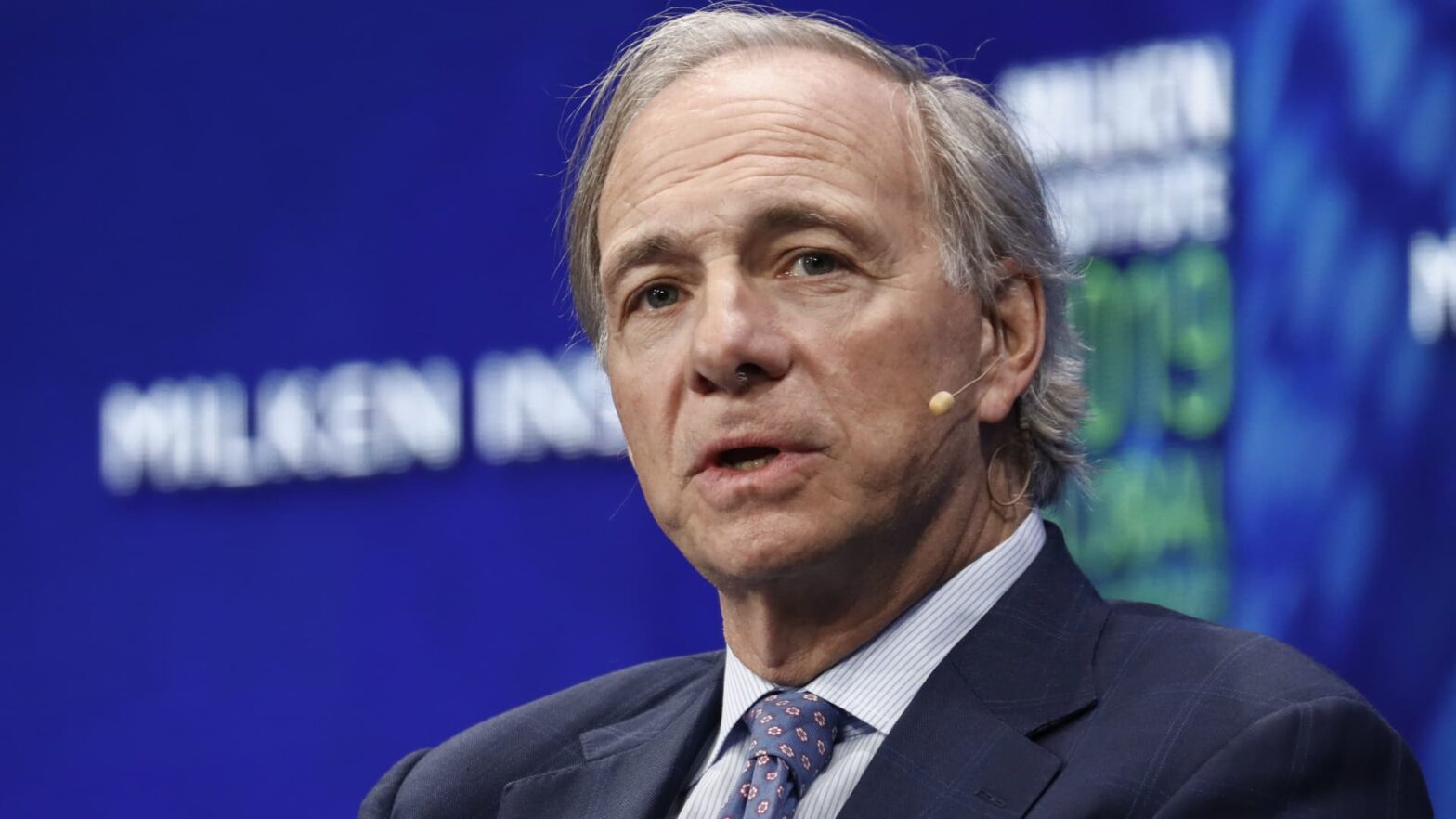Regeneron Pharmaceuticals Inc.’s
REGN,
agreement with the federal government to limit the list price of any new COVID monoclonal antibody commercialized as a result of their public-private partnership may have “far-reaching consequences” for drug pricing, Beacon Policy Advisors analysts wrote in a note Friday. Under the deal, part of the federal government’s Project NextGen initiative to accelerate development of new COVID vaccines and treatments, Regeneron agreed that the U.S. list price of any new product stemming from the partnership will be less than or equal to its price in comparable markets globally, the U.S. Department of Health and Human Services announced last week. The announcement is “groundbreaking,” Beacon analysts wrote in the note Friday, because it’s the first time the federal government has successfully limited the price of a pharmaceutical product based on international reference pricing and used that concept to limit the launch price of a new product. Regeneron is set to receive up to $326 million in government funding to support the development of the new COVID treatment through Project NextGen, the company announced last month. The new pricing deal signals that “the use of international reference prices remains firmly a part of the wider discussion of how to reduce prescription drug prices,” the Beacon note said, and could become a Centers for Medicare and Medicaid Services demonstration project under a second Biden administration or a renewed area of focus if former President Donald Trump were to regain the White House. Regeneron shares were up 0.7% premarket on Friday and have gained 15.4% in the year to date, while the S&P 500
SPX,
has gained 17.3%.
U.S. stocks open slightly lower after New York Fed’s factory gauge reading
U.S. stocks opened slightly lower on Friday, as investors assessed a gauge of manufacturing activity in New York State that indicated a rebound this month. The Dow Jones Industrial Average
DJIA,
was down 0.2% soon after the opening bell, while the S&P 500
SPX,
slipped 0.4% and the Nasdaq Composite
COMP,
fell 0.2%, according to FactSet data, at last check.
The Federal Reserve Bank of New York released data from its Empire State manufacturing survey on Friday, with the business conditions index climbing to 1.9 this month. Any reading above zero indicates improving conditions in the state. The data was stronger than forecast, as economists polled by the Wall Street Journal had expected a negative reading. The Fed has been tightening monetary policy in an effort to cool the U.S. economy and bring down inflation.
UAW strike trade fades, as GM and Ford stocks turn higher and Tesla shares drop
So much for the Big 3 automakers’ labor strike spooking investors, as shares of General Motors Co.
GM,
and Ford Motor Co.
F,
both turned positive moments after Friday’s opening bell, while Stellantis N.V.’s stock
STLA,
was always higher. And while Tesla Inc. was seen as a big beneficiary of the Big 3 legacy automakers’ labor troubles, the electric vehicle giant’s stock
TSLA,
turned lower. GM’s stock rose 1.8% in morning trading, reversing a 0.7% post-open loss and a decline of as much as 2.1% premarket; Ford’s stock was up 0.8%, after being down as much as 2.3% premarket and as much as 1.7% after the open; Stellantis shares were up 1.4%, after being up just 0.3% earlier. Tesla’s stock slumped 1.5%, after being up as much as 1.1% as the opening bell rang.
Planet Fitness names board member Craig Benson as interim CEO, as part of transition plan
Planet Fitness Inc.
PLNT,
announced a leadership transition on Friday, naming board member Craig R. Benson as interim CEO. Benson will replace Chris Rondeau, who will remain on the board and serve in an advisory role through the transition. “As we enter the next chapter of Planet Fitness’ journey, the Board felt that now was the right time to transition leadership,” said Stephen Spinelli, Jr. (Ph.D.), chairman of the board. “In today’s evolving environment, Planet Fitness is continuing to enhance our competitive advantage, capitalize on our size and scale, and drive further shareholder value.” Rondeau had spent 30 years at the company, while Benson has been a board member since 2017. The stock fell 3% premarket and is down 24% in the year to date, while the S&P 500
SPX,
has gained 17.3%.
Schwab stock drops as client assets fall in August
Charles Schwab Corp.’s
SCHW,
stock fell 2.5% in premarket trading on Friday after it said average interest-earning assets in August were down 23% from the year-ago period to $449.5 billion and were down 4% from July. On the plus side, Schwab said its Labor Day Weekend conversion of former Ameritrade customers was a “tremendous success” as the company migrated $1.3 trillion in client assets from more than 7,000 registered advisory firms firms and 3.6 million retail accounts. Core net new assets brought to the company excluding Ameritrade was $28.1 billion in August. Total client assets were $8.09 trillion as of month-end August, up 14% from a year ago but down 2% from the previous month.
Hold cash for now, don’t buy debt and bonds
Ray Dalio, billionaire and founder of Bridgewater Associates LP, speaks during the Milken Institute Conference
Bloomberg | Bloomberg | Getty Images
As concerns mount over rising interest rates and inflation levels, billionaire investor Ray Dalio says he prefers to hold cash for now, not bonds.
“I don’t want to own debt, you know, bonds and those kinds of things,” the founder of Bridgewater Associates said when asked how he would deploy capital in today’s investment environment.
“Temporarily, right now, cash I think is good … and the interest rates are fine. I don’t think [it] will be sustained that way,” Dalio told an audience at the Milken Institute Asia Summit in Singapore on Thursday.
Dalio’s comments come as the yield on the 30-day U.S. Treasury bill climbs above 5% while investors can get 4% on certificates of deposit and high-yield savings accounts.

Dalio says the biggest mistake that most investors make is “believing that markets that performed well are good investments, rather than more expensive.”
When asked how a new industry watcher should deploy capital, Dalio’s advice was: Be in the right geographies, diversify, pay attention to the implications of disruptions and pick asset classes that are creating new technologies and using them “in the best possible way.”
Rising debt
Touching on how to address the rising global debt, the hedge fund manager pointed out that when debt accounts for a substantial share of a country’s economy, the situation “tends to compound and accelerate … because you have to have interest rates that are high enough for the creditor and not so high that they are harming the debtor.”
“We’re at that turning point of acceleration. But the real problem comes when individuals or investors don’t hold the bonds, because it comes as a supply-demand, one man’s debts or another man’s assets,” he explained.
Dalio cautioned that investors will sell their bonds if they are not receiving real interest rates that are high enough.
“The supply-demand [imbalance] isn’t just the amount of new bonds. It’s the issue of ‘do you choose to sell the bonds?'” he explained.
When there’s a sell-off in bonds, prices fall and yields rise, as they have an inverse relationship. As a result, borrowing costs will increase and drive up inflationary pressure, thereby posing an uphill task for central banks.
“When the interest rates go up, the central bank then has to make a choice: Do they let them go up and have the consequences of that, or do they then print money and buy those bonds? And that has inflationary consequences,” Dalio explained.
“We’re seeing that dynamic happen now. I personally believe that the bonds longer term are not a good investment,” he stressed.
U.S. industrial output rises at stronger than expected rate in August on increase in oil drilling
Story developing, stayed tuned for updates here
The numbers: Industrial production rose 0.4% in August, the Federal Reserve reported Friday.
The gain was above expectations of a 0.2% gain, according to a survey by The Wall Street Journal.
Capacity utilization rose to 79.7% in August from 79.5% in the prior month.
The capacity utilization rate reflects the limits to operating the nation’s factories, mines and utilities.
Economists had forecast a 79.3% rate.
Key details: Manufacturing inched 0.1% in August after a 0.4% gain in the prior month. The gain was held back by a 5% drop in the output of motor vehicles and parts. Excluding autos, factory output rose 0.6%.
Mining output, which includes oil and natural gas, jumped 1.4% in August. The gain was primarily due to an increase of over 3% in the index for oil and gas extraction.
Utilities output rose 0.9% in August after a sharp 4.4% gain in the prior month as hot summer temperatures cooled a bit.
Nikola expands into Canada via partnership with commercial trailer maker ITD Industries
Nikola Corp.
NKLA,
said Friday it’s expanding its dealer sales and service network into Canada, via a partnership with ITD Industries Inc., a commercial trailer maker and technology business based in Toronto. ITD’s Toronto Nikola showroom and service operations will be integrated into its manufacturing facility with 55-foot ceilings and more than 78,000 square feet. ITD has built more than 20,000 trailers over two decades and has a growing base of customers in Canada. “Canada’s zero-emission vehicle friendly environment for Class 8 trucks, fueled by attractive incentives and its ambitious carbon reduction goals, makes it a strategic market for the future of transportation,” Nikola CEO Steve Girsky said in a statement. Nikola will be eligible for Canada’s Incentives for Medium- and Heavy-Duty Zero-Emission Vehicles (iMHZEV) Program, which offers up to CAD200,000 in incentives for the purchase or lease of Nikola’s hydrogen fuel cell electric truck and up to CAD$150,000 in incentives for the purchase or lease of its battery-electric truck. Nikola’s stock was up 14% premarket, rising with other EV stocks as auto workers represented by the UAW went on strike, weighing on the stocks of the big three car companies. The stock has fallen 47% in the year to date, while the S&P 500
SPX,
has gained 17.3%.
Arm, GM, Ford, Adobe and more
General Motors assembly workers picket outside the General Motors Bowling Green plant during the United Auto Workers national strike in Bowling Green, Kentucky, October 10, 2019.
Bryan Woolston | Reuters
Check out the companies making headlines before the bell.
KeyCorp — The Cleveland-based regional bank rose almost 2% premarket after Piper Sandler said the shares have begun to recover and it’s growing “more comfortable” with its profit estimates. Piper upgraded KeyCorp to overweight from neutral.
Keysight Technologies — Shares added about 1.5% after Morgan Stanley upgraded the test and measurement equipment maker to overweight from equal weight. The investment bank said Keysight’s current valuation doesn’t reflect its double-digit earnings growth.
Apellis Pharmaceuticals — The biopharmaceutical company climbed 3.5% before the open after Wells Fargo upgraded to overweight from equal weight. The bank aid Apellis offers a favorable risk-reward ahead of third-quarter earnings.
General Motors, Ford, Stellantis — GM and Ford fell less than 1% and Stellantis rose less than 1% after the United Auto Workers went on strike Thursday night. About 12,700 workers at three key assembly plants walked out, according to the union.
Unity Software — Shares in the video game developer stock added almost 3% premarket on the heels of an upgrade to buy from Bank of America. A stable advertising business, better monetized game engine, priced-in “risks and execution issues” and “potential upside” to 2024-2025 earnings estimates underpinned the upgrade.
DoorDash — Shares of the food delivery company slid almost 3% premarket after MoffettNathanson downgraded DoorDash to market perform to outperform. The research firm said that the resumption of student loan payments could hurt food delivery demand.
Arm Holdings — Shares of the semiconductor and software stock gained 5.4% premarket after its rally on Thursday, when the company made its Nasdaq debut through an initial public offering and jumped nearly 25%. Needham initiated coverage of the British company with a hold rating, saying Arm’s valuation looks “full” in a post-smartphone era.
Adobe — Shares fell 3.4% on the back of the company’s fiscal third-quarter earnings report Thursday. Earnings and revenue at the PhotoShop and Acrobat maker beat analysts’ estimates and forward guidance matched Street projections. While Goldman Sachs and Bank of America reiterated buy ratings, JPMorgan remained neutral, citing macroeconomic headwinds and a high premium for Adobe’s pending acquisition of Figma for $20 billion.
Nucor — The steelmaker fell 2.3% before the open after issuing weaker-than-expected earnings guidance for the third quarter, citing weaker pricing and volumes. Nucor forecast earnings between $4.10 and $4.20 per share, versus the $4.57 expected by analysts polled by LSEG.
— CNBC’s Brian Evans, Michelle Fox, Alex Harring, Hakyung Kim, Tanaya Macheel, Jesse Pound and Pia Singh contributed reporting





